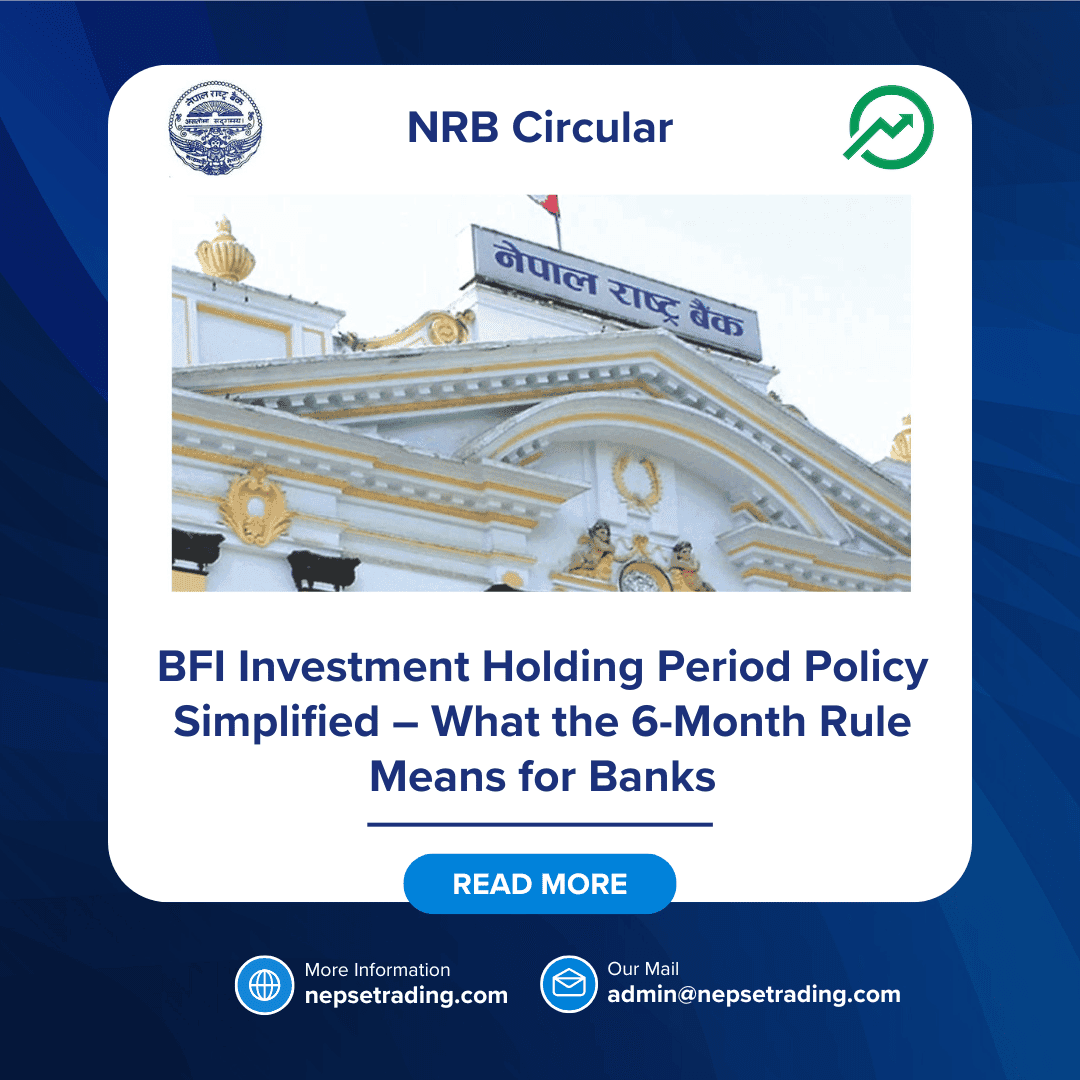By Sandeep Chaudhary
BFI Investment Holding Period Policy Simplified – What the 6-Month Rule Means for Banks

The Nepal Rastra Bank (NRB) has brought a major simplification to its Unified Directive 2082 (2025 AD) by revising the investment holding period policy for banks and financial institutions (BFIs). Under this reform, the minimum investment holding period for listed shares and debentures has been reduced from one year to six months, a move widely seen as a balance between regulatory stability and market flexibility. This new rule marks a strategic shift in NRB’s approach — allowing banks to manage their portfolios more efficiently while supporting greater liquidity in Nepal’s capital market.
What the 6-Month Rule Means
Previously, all BFIs were required to hold investments in listed securities for at least one year before being allowed to sell them. This was intended to prevent short-term speculation and maintain stability in the financial system. However, it often restricted institutional investors from actively managing their portfolios, even in changing market conditions.
With the introduction of the 6-month rule, banks can now sell shares or debentures after six months of acquisition. The directive states clearly:
“Banks and financial institutions may invest in the shares and debentures of organized institutions listed in the stock exchange for a period of not less than six months. No short-term investment shall be made in such securities.”
This means banks and financial institutions can now rebalance, sell, or reallocate their investments twice as fast as before, enabling quicker portfolio optimization.
Flexibility With Responsibility
While NRB has relaxed the timeframe, it continues to emphasize responsible investment and risk management. The new directive does not permit short-term trading or speculative activity — instead, it encourages strategic, policy-driven investment that enhances liquidity and profitability without exposing the banking sector to undue volatility.
The policy also removes the 20% annual disposal limit, allowing BFIs to sell more than 20% of their paid-up investment value in any fiscal year. This grants institutions the freedom to act dynamically in response to market conditions, liquidity needs, or internal capital strategies.
Rules for Unlisted Investments Remain Tight
The relaxation applies only to listed securities. For unlisted share or debenture investments, NRB has maintained strict controls. Such investments must be listed within three years from the date of purchase.
If they are not listed within that timeframe, the BFI must transfer an equivalent amount from retained earnings to an “Investment Adjustment Fund,” which cannot be used until the investment is listed. This ensures transparency and discourages institutions from investing in opaque or illiquid assets.
Impact on the Banking and Stock Market
Experts believe this simplification will encourage higher institutional participation in NEPSE, increase market depth, and enhance liquidity circulation. Banks and development finance companies will be able to adjust their investment exposure more proactively, aligning their strategies with market trends.
This policy also aligns Nepal’s banking regulation more closely with international investment flexibility standards, helping BFIs modernize their financial management practices.









